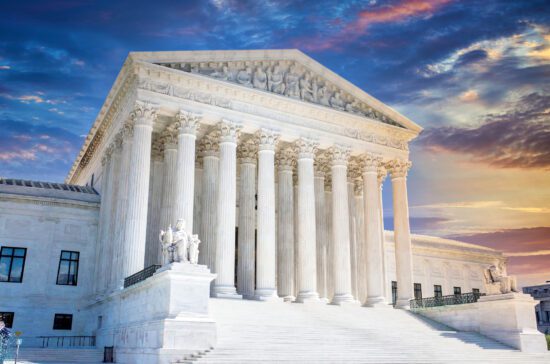Panel: Death and Disease—Respecting Human Dignity Throughout All of Life (Daniel Darling—moderator, Scott James, Paige Cunningham, Benjamin Mast and Ben Mitchell)
Every human being will age and face death. And as Paige Cunningham pointed out during the panel, most people will have to make a bioethical decision—whether for themselves or for a family member. How should evangelicals equip themselves to deal with the inevitable? And how should pastors ready their congregations to embrace the elderly, the sick and the dying?
Here are a few thoughts from the panel:
Mast: There is a misconception that older people are sick or when they are confused or forgetful they are no longer a whole person. Instead of looking at them as a whole person made in the image of God, we fail to realize they have the same emotional needs as the rest of us. Alzheimer affects individuals, and the whole family,
Cunningham: How visible are the elderly in your congregation? It sends a message of how we view them. Are they wise or a nuisance? The church should not fear death and dying. We are called to die well to the glory of God to show to how to live through suffering, whether through disease or aging.
Mitchell: What we say at the beginning of life has application at the end of life. We say an embryo (not fully developed) is a whole, complete, human being. So when a person is aged or diseased and lost some faculties, that person is also a whole, complete human being. Also, churches should be more involved in hospice to care for and minister to people in the final stages of life.
James: Healthcare is a pro-life issue. Finding cures for disease is a pro-life act. We want people to thrive and flourish. Pro-life advocates should be involved in healthcare because it involves common good of our citizens.
Protecting Life: Pursuing Policies That Uphold Human Dignity (Jennifer Marshall)
How we can be focused on most important aspects of what needs to be done in this particular season? The Heritage Foundation’s Jennifer Marshall is encouraged to see a declining abortion rate, but outlined what needs to happen for it to continue momentum.
- Permanently ending taxpayer funding of abortion. The taxpayer funding should not go to organizations, like Planned Parenthood, who perform abortions. A year ago Congress began an investigation into Planned Parenthood and the selling of human body parts. The results, released earlier this month comprise a 418-page document, showing they did, indeed, profit.
- Ban abortion of unborn children who can feel pain. Senator Lindsey Graham is working to bring awareness to this issue, citing that if a baby needs anesthesia for prenatal surgery, they can feel pain. The United States is one of seven countries who perform elective late-term abortion.
- Respect conscience. No one should ever be coerced to perform an action they feel is wrong. Congress can pass the Conscience Protection Act—to protect people from participating in or subsiding
- Repeal Obamacare. It dictates what employers must offer.
“While Congress works on repealing Obamacare, President Trump should act immediately to halt the Health and Human Services mandate,” she said. “And to stop the transgender mandate that requires doctors to offer transgender treatment.”
While Marshall is encouraged about the position of the current administration on these issues, she says the church should remain diligent. “Whether standing for life at the United Nations, passing common sense health laws, resisting assisted suicide, we need to redouble our efforts.”
Unexpected Advocates: Embracing Divine Opportunities to Save Lives and Protect Conscience (Kristen Waggoner)
Kristen Waggoner, a senior counsel at Alliance Defending Freedom who leads U.S. legal advocacy, gave examples of soldiers in the fight for freedom of conscience. Here are a few:
- Kathy and Fay are nurses in different states. Both were told they would need to assist in performing abortions. Both wanted to “heal, not kill.” Their local governments got involved, and thankfully, they were able to keep their jobs without having to violate their consciences by taking life.
- Rachel DiSanto, a doctor in Vermont, faces a violation of conscience issue. While there is an assisted suicide exemption law in place, the state of Vermont says doctors have to tell patience the drugs are available and counsel them on it. She and others have filed a lawsuit challenging the law.
- The Stormanses, a family of store/pharmacy owners who found themselves in the midst of the controversy surrounding a Washington law compelling pharmacies to carry Plan B, are still in the fight. This controversy came to the surface more than a decade ago and they are still waiting to see if the Supreme Court will hear their case.
While most people will not be involved in conscience-related lawsuits, Waggoner urged the Evangelical for Life crowd to be faithful in their mundane daily lives.
“Christ Jesus has called us to do good work,” she said. “To be outwardly focused and be culture makers for his glory.”
Panel: Why Legislation Matter for the Pro-Life Cause (Andrew Walker—moderator, Michael Wear, Jennifer Marshall, Kristen Waggoner, Travis Wussow and Timothy Goeglein)
A panel of policy workers and attorneys gathered to discuss the role of policy in the pro-life movement. Here are some of their contributions to the conversation:
Wear: The repeal of the Hyde Amendment is a bridge too far it moves from whether abortion should be legal to whether it is a moral wrong.
Goeglein: “We have entered into the high water mark of the pro-life movement since 1973. The political class has followed what is happening in the culture” (citing the example of the Mexico City Policy executive order).
Waggoner: “There are challenges for pro-life movement, but we have to have the freedom to speak about our belief regarding life.
On the significance of Vice President Pence addressing the March for Life:
Wussow: “It’s extraordinary because it show Washington is taking note of the shift in culture. The young crowd (at the march) gave me hope. It’s helpful to have a visible advocate like Vice President Pence in the White House.”
Goeglein: “The way we shape public sentiment is important, and it begins in the White House.”
The Beauty of Diversity: Celebrating the Dignity of Every Tribe, Tongue and Nation (Jackie Hill Perry)
Artist and poet Jackie Hill Perry is “grieved and grateful” that God has shown the church her blind spots when it comes to diversity.
Perry highlighted several things that should happen in the heart before we celebrate diversity:
- Repent. Sins of discrimination against people who are different from us is a sin against God. It’s a dangerous assumption that one’s own race or culture is the standard. It’s hard to see beauty in a culture when you see it as lesser.
- Remove fear. It promotes separation. “If fear is keeping you from loving people who are different from you, then fear is keeping you from God.”
- Remember. Are we changed by the gospel? Have we remembered what Christ has done for us and that everyone is created in his image? Being created in the image of God means we were created to spread his glory—and that we are to love as he loves. “It is with unveiled faith we must behold his glory and be transformed into his image … this faith will undo apathy.”
- Invite. “The diversity of heaven exists because God wanted it to.” Do you have affection for every tribe, tongue and nation? Or it is a duty for you? God included everyone into the nation of Israel. We are not “a people,” but he has called us as such. He set his affection for us. He did send Jesus because he had to; he did so because he loves us. Pray for God to give us a brotherly affection for the nations and to invite them into our lives and churches.







